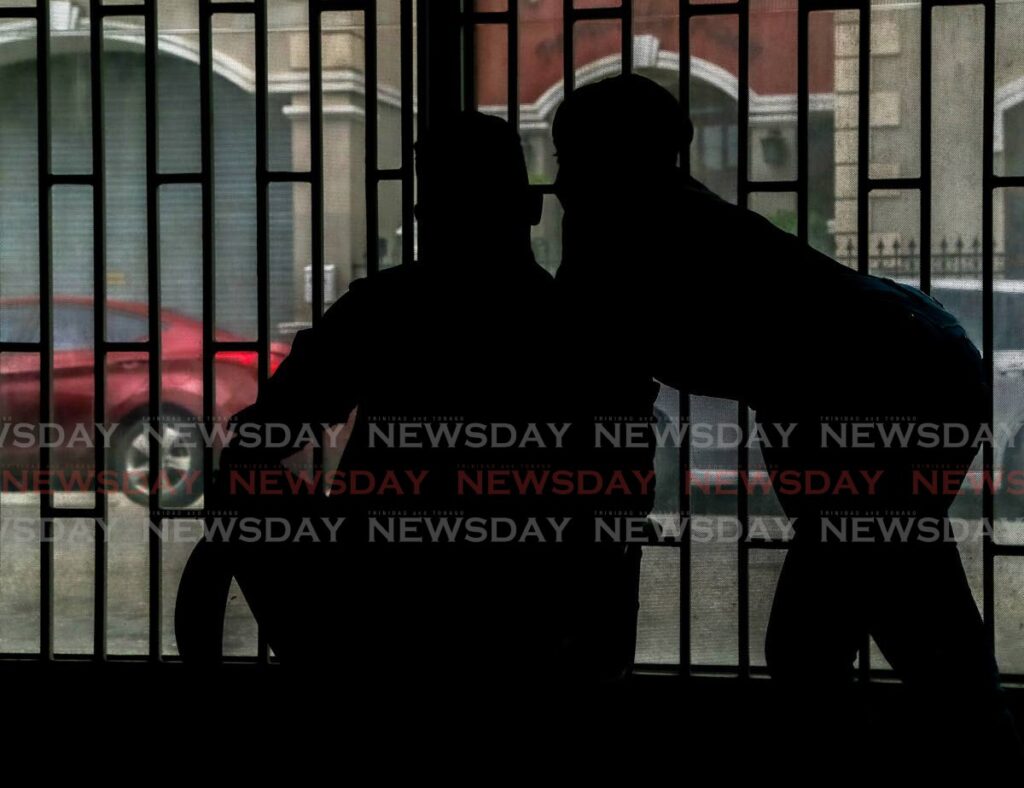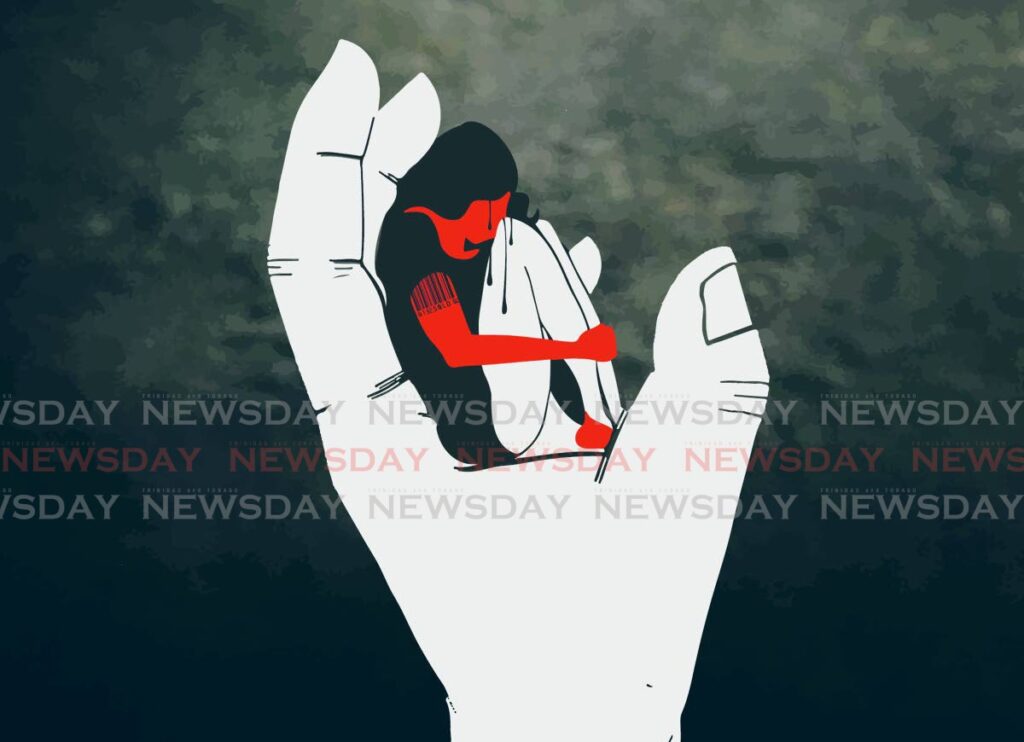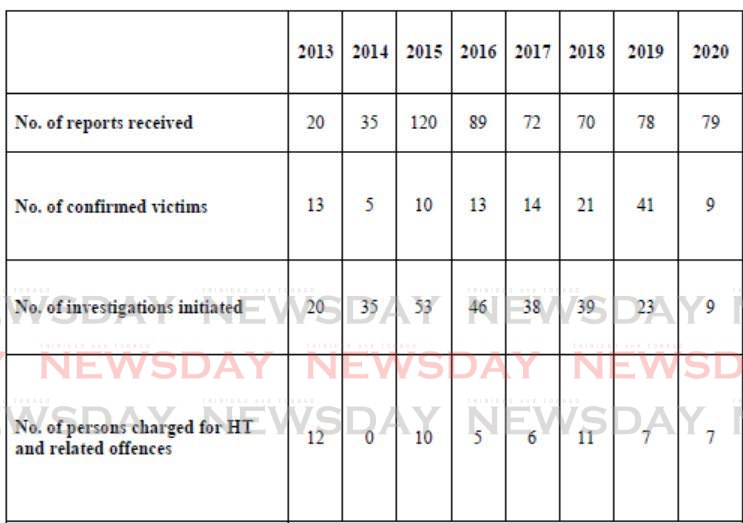Prostitution to forced labour: What human trafficking looks like in Trinidad and Tobago

Lured by the promise of work and an opportunity to earn US currency, Lucia* left her home in Venezuela for TT and claimed she was tricked into prostitution.
The victim of human trafficking victim said she managed to escape her captors.
Lucia said she responded to advertisements in newspapers in Caracas and on social media such as Facebook and WhatsApp groups offering jobs in TT.
The unsuspecting victim recalled that she called the phone number and gave them her personal information such as her name, age, address, and the type of job she would be interested in.
"They even asked for her parents’ names and address. So it is likely these people (traffickers) visited to verify her information," according to a close confidant of Lucia.
Eager for an escape to better her life, the young woman in her 20s was told to go to a specific bus station in Caracas. On arrival, a man and woman paid her ticket fare and ensured she got on the bus for the 14-hour trip to Tucupita, one of the closest points to TT.
As soon as she got off the bus, she was greeted by another couple who took her to a house for a few hours. The journey was intense, and the next trip was to an indigenous community in a forested area.
There, they monitored the movements of the Guardia Nacional to make the clandestine trip to Trinidad which is often at night on a pirogue.
Upon arrival, "A local picked her up and took her to a house. There it starts, the same night. She, like other victims, come here with nothing, in most cases, not even a passport. The women and minors are used for prostitution," said the confidant.
The victim managed to escape and flagged down a passing car. Unable to speak English, she somehow managed to tell the driver that she wanted to go to the police. She was taken to a police station in south Trinidad.
The confidant, someone who has been working with migrants, said because of the covid19 pandemic, recruiters are now asking about the vaccination status of potential victims.
The topic of prostitution as it relates to migrants amplified on February 11 when the Prime Minister in Parliament said that the demand for prostitution in TT is being driven by a high rate of local consumption, especially in the borough of Chaguanas.
Dr Rowley was responding to Naparima MP Rodney Charles in the Prime Minister’s question segment in the House of Representatives. The opposition MP questioned whether this country should not have had "well-publicised guidelines" to govern the interaction between TT’s border security officers and migrants similar to what happens in the US, UK and Canada.

In response, Rowley quoted from the document on gender and crimes. The document's title is Venezuela’s Other Plight: Sex Trafficking in Trinidad and Tobago, dated February 11, 2021, by the investigative unit of InSight Crime.
InSight Crime is an organisation comprising 50 investigators, including seasoned reporters and people with graduate degrees in Latin America, working across the Americas and Europe. The organisation was founded in 2010.
"Some stay in the south while others head to the north and central region, many to the borough of Chaguanas where the demand for prostitute thrives," Rowley read from the report.
He added that the investigators found that the demand for sex and prostitution in TT is being driven by a high rate of local consumption, especially in Chaguanas.
Exploited migrants from Venezuela to Guyana
Sunday Newsday contacted the Ministry of National Security's Counter Trafficking Unit (CTU) director Alana Wheeler for more detailed information on human trafficking in TT.
Of Wheeler’s 25 years working in the field of national security, nine have been in anti-human trafficking efforts in this country. Via e-mail, she said that historically, brothels existed in the south and southwestern Trinidad, Port of Spain, central, southeastern Trinidad and scattered parts of northern Trinidad.
Managers of brothels in the south and central Trinidad have been charged for human trafficking by the CTU. The unit identifies different types of trafficking – domestic servitude, forced labour, and sexual exploitation.
She added that the human trafficking industry is not limited to brothels. She identified other industries such as roadside vendors, gas stations, domestic homes, guest houses, modelling agencies, massage parlours, the spa industry, restaurants and the gaming machine industry.
From 2018, the unit has seen an increase in the referral and identification of unaccompanied and separated migrant minors as well as adult female migrants.
In terms of statistics for last year, Wheeler said the unit received at least 100 reports of suspected human trafficking activities.

"Sixteen people were charged with trafficking in persons and related offences under the Immigration Act, Anti-Gang Act and Children’s Act," she said.
Three from this group were regular police and an SRP.
Police also charged several Venezuelans, Chinese and locals.
The unit identified 60 victims, including an Indian national for forced labour, and Venezuelan adults and minors for sexual exploitation.
Between 2013 and 2020, the CTU received 563 reports. The highest amount was 120 reports in 2015. For these seven years, CTU confirmed 126 were victims after 263 investigations and 58 people charged with human trafficking and related offences.
In terms of nationalities of confirmed victims, Wheeler said that Venezuela has the highest percentage (80) for sexual exploitation, followed by Colombia at 2.5 per cent then the Dominican Republic at 0.8 per cent.
In terms of forced labour and domestic servitude, Guyana accounts for four per cent and Bolivia, 0.8 per cent.
CTU has embarked on several strategies to combat the lucrative and illicit trade, like weekly publications in Newsday to educate the public on human trafficking. Another is a weekly live radio programme to raise awareness and a third is training for frontline workers like Coast Guard officers to screen locals and foreigners for human trafficking indicators.
Wheeler acknowledged that despite the unit’s achievements, it faces several challenges relating to human and financial resources. Another issue is the collusion that compromises some operations and cases, with suspects fleeing the scene before police arrive.
Another is the "very slow judicial system," which "frustrates victims."
The pandemic has impacted CTU’s operations in that many staffers have been in quarantine.
"The pandemic has caused greater economic hardship, which has led to increased vulnerability for individuals in TT and regionally," Wheeler said.
"The increasing trend of irregular migration, particularly the smuggling of migrants from Venezuela, has been exacerbated during the pandemic, which has had a multiplier effect on human trafficking. International border closures also brought about this trend."
An ex-MP's fight to stop brothels
Former Couva North MP Ramona Ramdial believes that human trafficking and prostitution got worse over the years due to the influx of migrants.
She charged that authorities, including the judicial system, have become less proactive in dealing with the situation. She said, "rogue elements in all arms of the protective services" have expanded over the past few years.
For that reason, the ex-UNC MP believes prostitution is hard to fight.
As the MP, she managed to get a brothel shut down for about six months after years of trying to do so. She, together with constituents, objected to the owners having their bar license renewed by a committee in the Chaguanas magistrates court.
Many bars and guest house owners use their establishments as cover-ups for prostitution, according to Ramdial.
"The residents did not object to the renewal on the grounds of prostitution but rather for the noise levels, vending and traffic, bad parking, confrontations between patrons and residents, and so on. We mobilised the community and went to court," Ramdial said.
"A challenge was that some people, fearful they might have been victimised or targeted, did not want to sign the petition. Another is some police did not show up in court for the matter. My staff and I were targeted on several occasions by people calling the office for us to ‘leave that alone’ and ‘don’t go there.' "
While in office between 2010-2020, Ramdial recalled there were several raids involving Defence Force members and the police led by officers "outside of the Central Division."
Several migrants were arrested for illegal entry, others for lewd behaviour but not for prostitution.
"I do not know what happened to some of the girls or if the police were able to make any prostitution link. Prostitution is not just in Central, it's everywhere. Besides prostitution, there is also the issue of forced labour and cheap labour."
Ramdial said she tried her best as an MP to address the problem.
"In my last contribution in Parliament, I appealed to the police to shut down three brothels in my constituency. The issue is real, and it is prevalent."
Head of the Central Division Snr Supt Curt Simon said officers are on the lookout for prostitution rings and reports of prostitution. In a brief conversation, Simon urged the public to share any information regarding the issue with the police.
NGO's efforts to help migrants
Sunday Newsday also spoke with the director at the La Romaine Migrant Support Group (LARMS) Angie Ramnarine who has been working extensively with the Venezuelan migrant community in La Romaine and other parts of the island.
Many landlords, more so those with single female tenants who cannot pay their rent, often demand sex as payment, Ramnarine said.
"When the woman refuses, it is crunch time for her. She is out on the street with her children. I saw that for myself, and I am sure it is rampant," she said.
She said many Venezuelans are desperate for jobs to care for their families. Some turn to work in bars where they are paid low, sometimes below the minimum wage.
"Some owners have them there to be used as sex objects or sex workers. I have seen cases where because of the demeaning nature of the sexual exploitation in the bars, the migrants would drug themselves to develop a buffer to numb themselves to the degrading act they might have to perform to earn a living."
Ramnarine said even though victims of sexual exploitation come forward with information, most of them then retract their statements, fearful of the loss of income and possible retribution from the employer.

"There are other types of exploitation. Most of the men work in the construction industry. I know a case in which three men were injured on the job due to employers' not following occupational safety and health guidelines," Ramnarine said.
"They are laid up in bed, unable to pay their rent and cannot get in touch with their employers for help. Some migrants are working on farms, sun-up to sun-down for $50 daily."
She recalled that a family of 26 working on a farm fled Moruga because the owners "did not feel to pay them" for their labour.
She added that a local put a gun to the heads of male migrants working at a construction site, telling them to "get lost" without paying them.
"Every day, I am working with migrants in one way or the other. This is my full-time vocation, it's unpaid work but I feel morally obligated to lend a hand to those who are deprived of rights and dignity," she said.


Comments
"Prostitution to forced labour: What human trafficking looks like in Trinidad and Tobago"